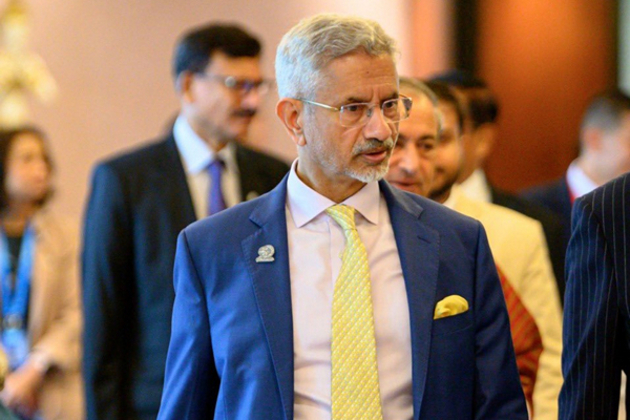In Canada's 2025 federal election, is anyone paying attention to rural communities?
The Conversation
07 Apr 2025, 18:52 GMT+10

The 2025 federal election is characterized by anxiety, primarily driven by the actions and economic consequences of United States President Donald Trump's agenda.
As tariffs and threats to Canadian sovereignty continue, it is little wonder why election promises have so far focused on jobs, tax breaks, infrastructure reinvestment, trade and military spending.
While sovereignty and rising costs of food, energy and critical minerals are key election issues, rural Canada has not been the focus of any of the major political parties.
Rural Canada is home to roughly one in five Canadians. It's also home to the vast majority of the Canadian land base, including watersheds and food sheds - geographical areas that supply food to the population - as well as energy sources, critical minerals and forests.
As Canada faces increasing economic uncertainty, rural areas will play a critical role in supplying essential resources. Ensuring they benefit from this role requires strong place- and evidence-based rural development programs and policies from the federal government, whoever leads it after April 28.
Significant challenges - from trade wars to climate change - impact every community across Canada. However, what this looks like and how this is felt on the ground is different across rural Canada. All too often government policies and programs fail rural citizens and communities in one of two ways:
They don't account for the impact of rural Canada. This means policies and programs fail to consider how rural realities can interfere with their intended implementation.
They don't account for the impact of policies and programs on rural Canada. These failures are the unintended impacts that "place-blind" policies and programs have on rural communities.
These policy failures are driven by an urban bias in federal policies and programs. This bias is a result of limited or obscured rural data and the concentration of policy and decision-makers in Ottawa. These policy failures contribute to larger problems, like Canada's growing issue with regional disparities, often along rural-urban lines.
This is nothing new.
Read more: Canadian election 2021: Why rural Canada must play a central role
Rural Canada has a long history of being misunderstood and poorly represented in federal policy. Past and current federal efforts to include rural Canada in policymaking have been sporadic or uneven.
A national Rural Secretariat was established in 1996, and a "rural lens" was established in 1998. Both had the express purpose of providing leadership and co-ordination related to rural and remote areas within the federal government. These programs were then dismantled by the former Conservative government in 2013.
In 2019, the Liberal government established Canada's first minister of rural economic development. Alongside this came a strategy for rural Canada, new tools to incorporate rural considerations and the Centre for Rural Economic Development, which included regionally located rural advisers.
However, as of 2025, these efforts have been weakened or ignored. The minister for rural economic development is now the minister of agriculture and agri-food and rural economic development. The Centre for Rural Economic Development - now housed in a separate ministry from the minister - has quietly ended its regional rural adviser program.
These examples illustrate the ongoing uncertainty of how realities of rural Canada are integrated - or not - into federal policies and programs. Rural Canada is often lumped in with a particular sector, including agriculture or natural resources. The de facto rural policy then becomes sector-focused.
This is a problem, because rural communities often have little or no power over resource development decisions and are largely at the mercy of companies that can simply pack up and leave.
A sector-based approach also ignores the multiple, complex and integrated needs and opportunities across rural places. The 2024 State of Rural Canada illustrates this complexity of rural issues. It offers recommendations to policymakers, one of which is the development of a comprehensive, cross-sectoral strategy that recognizes the diversity of rural Canada and provides a framework for co-ordinated action.
The need to shift to integrated, place-based approaches over sector-based is echoed in findings from research conducted both in Canada and internationally.
Based on our research across rural Canada, we support these findings. We also support the recent statement by the Canadian Rural Revitalization Foundation, which calls on the federal government to implement the following actions:
Rural Canada is vital to the future of Canada. It is critical that all political parties campaigning for the federal election have a platform that meaningfully includes rural Canada - and refrain from focusing only on sectors that operate in rural Canada.
The Canadian Rural Revitalization Foundation recently released a list of questions that people can pose to their potential member of Parliament.
No. 1 on this list is: "What is your party's vision for rural and northern Canada?" And yet few of the parties are answering or tackling that question during the ongoing election campaign.
 Share
Share
 Tweet
Tweet
 Share
Share
 Flip
Flip
 Email
Email
Watch latest videos
Subscribe and Follow
Get a daily dose of Calgary Monitor news through our daily email, its complimentary and keeps you fully up to date with world and business news as well.
News RELEASES
Publish news of your business, community or sports group, personnel appointments, major event and more by submitting a news release to Calgary Monitor.
More InformationNorth America
SectionStellantis halts Windsor production amid tariff tensions
WINDSOR, Ontario: Production at Stellantis' Windsor, Ontario assembly plant will pause for two weeks, as mounting trade tensions trigger...
Trump threatens China with extra 50% tariff
The US president has demanded that Beijing rescind its retaliatory 34% levies on American imports President Donald Trump has threatened...
Trumps tariff war breaks the rules and dares the world to stop him
Washington rewrites trade law by ignoring it The future of global trade and the impact of US President Donald Trump's latest tariff...
Trump threatens additional 50 pc tariffs on China amid escalating trade tensions
Washington, DC [US], April 7 (ANI): US President Donald Trump on Sunday warned of new and significantly higher tariffs on Chinese goods...
German car giant to suspend deliveries to US
Audi is holding back vehicles that fall under the new tariffs, according to a report German carmaker Audi is halting deliveries of...
Jaishankar, Rubio discuss Indo-Pacific, trade pact
New Delhi [India], April 7 (ANI): External Affairs Minister S Jaishankar spoke with US Secretary Marco Rubio, exchanging views on a...
Canada
SectionStellantis halts Windsor production amid tariff tensions
WINDSOR, Ontario: Production at Stellantis' Windsor, Ontario assembly plant will pause for two weeks, as mounting trade tensions trigger...
French-British firm admits it cant compete with Musks Starlink
The tech tycoon has previously threatened to shut down the communications system that Kievs forces depend on Kiev's European backers...
EU looking to replace Musks Starlink in Ukraine Politico
The tech tycoon has previously threatened to shut down the communications system that Kievs forces depend on Kiev's European backers...
More than a department store: The long, complicated legacy behind Hudson's Bay Company
The bankruptcy of the Hudson's Bay Company (HBC) is often framed as the fall of Canada's oldest company. Media narratives typically...
In Canada's 2025 federal election, is anyone paying attention to rural communities?
The 2025 federal election is characterized by anxiety, primarily driven by the actions and economic consequences of United States President...
U.S. tariff threats could fuel maple syrup fraud, but AI could help navigate this sticky situation
Maple syrup, often called Canada's liquid gold, has long been a target for fraudulent activities, such as the dilution or substitution...











